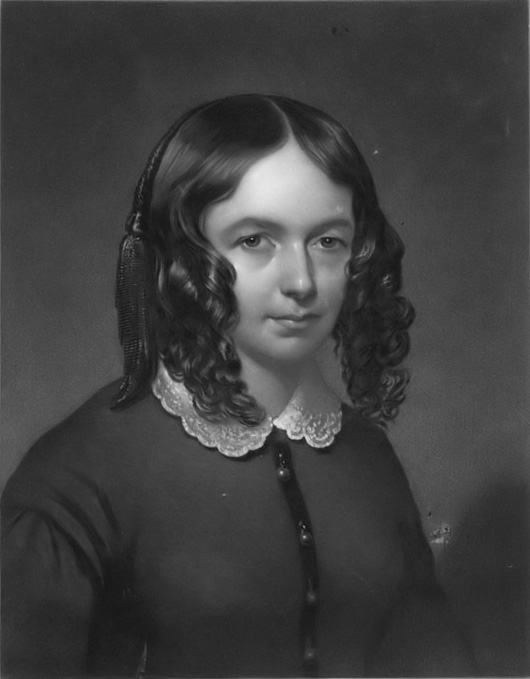
Frasi Celebri di Elizabeth Barrett Browning
Elizabeth Barrett Browning died in her husband's arms in 1861. Last Poems was published posthumously and included 'A Musical Instrument'. It is deceptively simple: the great God Pan, 'Spreading Ruin and scattering ban' is a destructive as well as a creative force: he makes music by doing damage. It is as though this nineteenth-century.

A4 Size Parchment Poster Classic Poem Elizabeth Barrett Browning How Do
The complete poetical works of Elizabeth Barrett Browning by Browning, Elizabeth Barrett, 1806-1861. Publication date 1900 Topics Browning, Elizabeth Barrett, 1806-1861, Browning, Elizabeth Barrett, 1806-1861, English poetry, English poetry Publisher Boston : Houghton Mifflin ; Cambridge, Mass. : Riverside Press
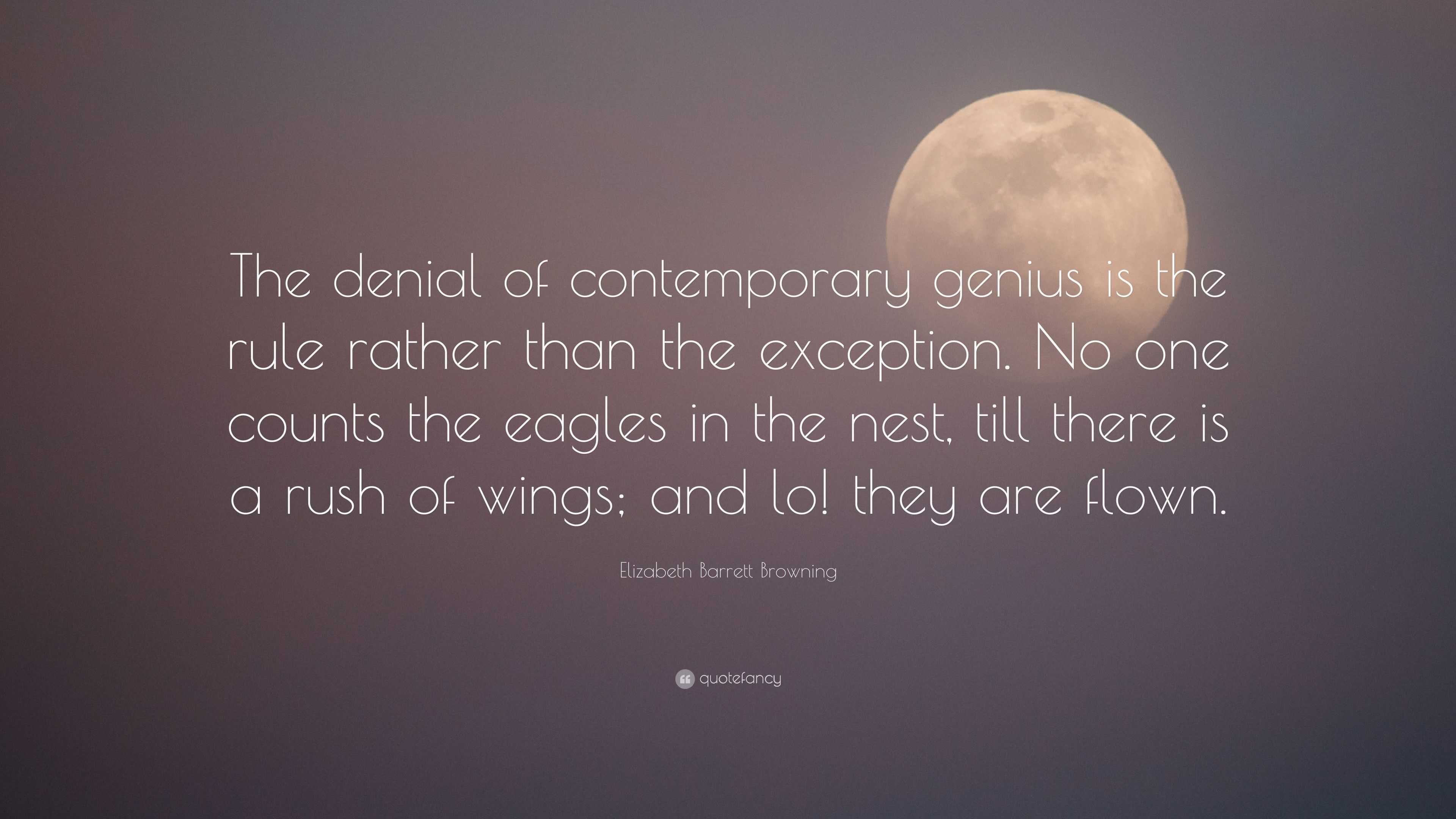
Elizabeth Barrett Browning Quote “The denial of contemporary genius is
I love thee to the depth and breadth and height. My soul can reach, when feeling out of sight. For the ends of being and ideal grace. I love thee to the level of every day's. Most quiet need, by sun and candle-light. I love thee freely, as men strive for right; I love thee purely, as they turn from praise. I love thee with the passion put to use.
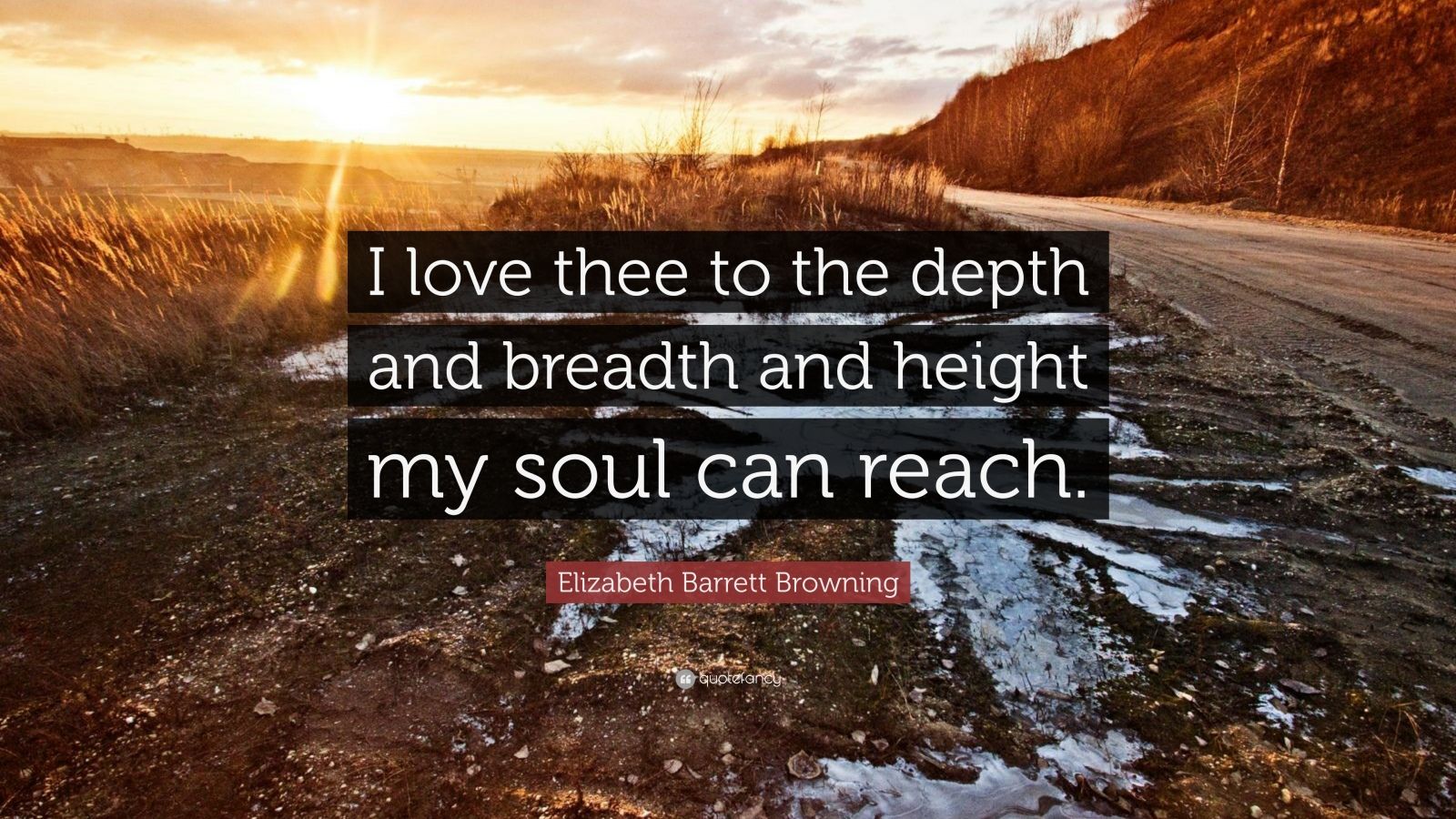
Elizabeth Barrett Browning Quote “I love thee to the depth and breadth
Elizabeth Barrett Browning (born March 6, 1806, near Durham, Durham county, England—died June 29, 1861, Florence, Italy) English poet whose reputation rests chiefly upon her love poems, Sonnets from the Portuguese and Aurora Leigh, the latter now considered an early feminist text.Her husband was Robert Browning.. Elizabeth was the eldest child of Edward Barrett Moulton (later Edward Moulton.
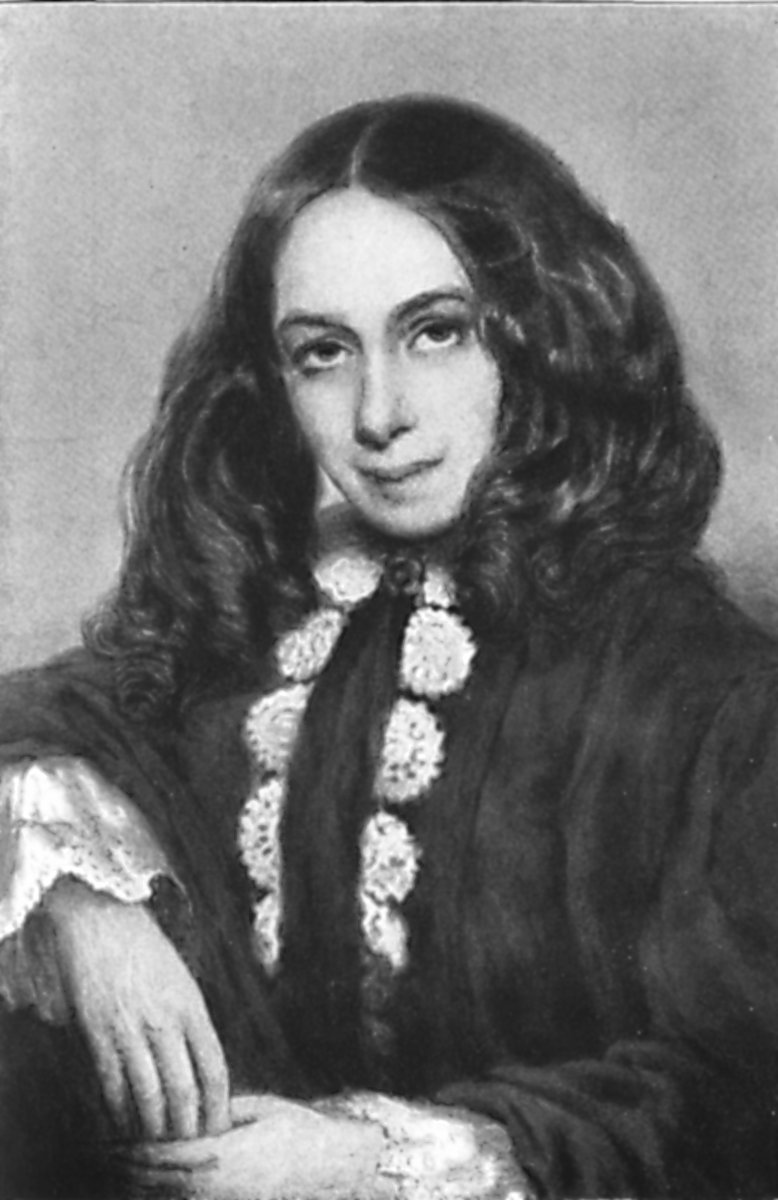
tvcinemateatro―i protagonisti Elizabeth Barrett e Robert Browning Un
By her death, Elizabeth Barrett Browning (1806-1861) was a foundational figure herself for women writers in Britain, Europe, and North America. She was famous not only for the epic verse novel Aurora Leigh (1856), the first extended portrait of the woman writer in English poetry, but also for generically diverse works in four progressively.

Analysis of Poem 'How Do I Love Thee?' by Elizabeth Barrett Browning
Elizabeth Barrett Browning was born on March 6, 1806, at Coxhoe Hall, Durham, England. She was the oldest of 12 children, and her family made their fortune from Jamaican sugar plantations.

FileElizabeth Barrett Browning.jpg Wikimedia Commons
Elizabeth Barrett Browning - Early Life. Elizabeth Barrett Moulton-Barrett was born on 6 March 1806, in Coxhoe Hall, between the villages of Coxhoe and Kelloe in County Durham, England, to Edward Barrett Moulton-Barrett and Mary Graham Clarke. The couple had twelve children (eight boys and four girls) and Elizabeth was the oldest of her.

Elizabeth Barrett Browning Quotes QuoteHD
This edited article about Elizabeth Barrett Browning originally appeared in Look and Learn issue number 147 published on 7 November 1964. The Brownings in Venice by Arthur A Dixon Through every minute of the night before her wedding the bride lay awake, her mind and body strung to such a pitch that sleep was certain […]
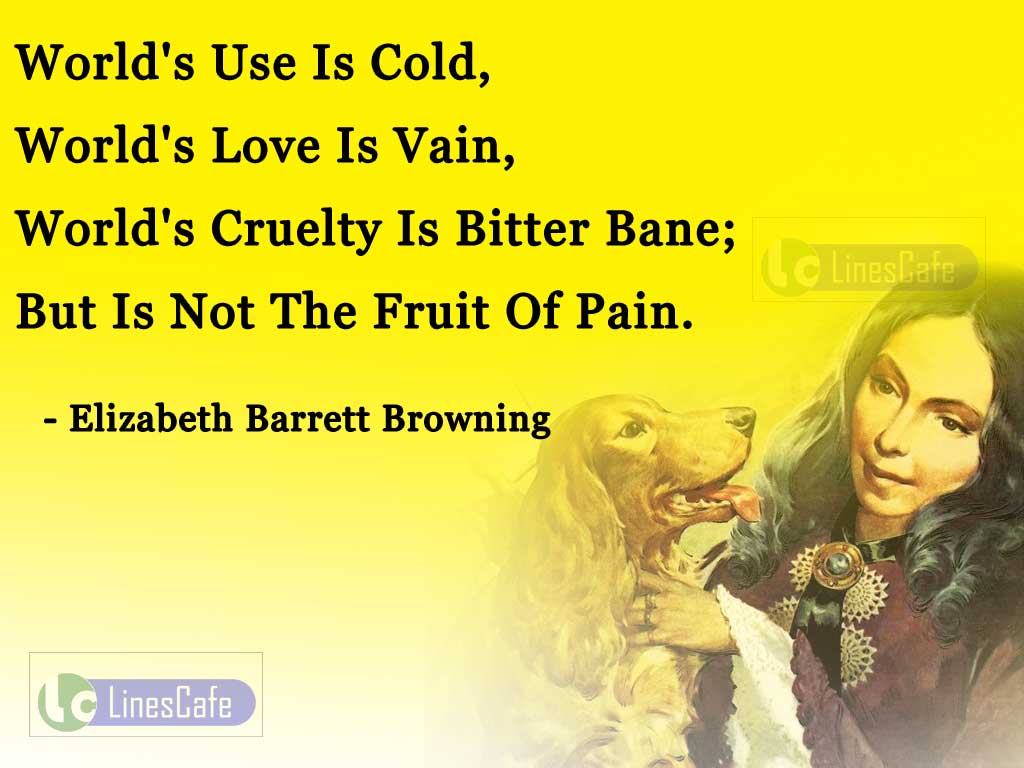
Famous Poet Elizabeth Barrett Browning Top Best Quotes (With Pictures
Robert Browning, then a struggling young poet, writes a fan letter to the much better-known Elizabeth Barrett, a housebound invalid. He begins a passionate correspondence with her, marries her.

In Ñspel BELOVED, THOU HAST… by Elizabeth Barrett Browning
Family origins. Elizabeth Barrett Browning's family origins are documented in Jeannette Marks's The Family of the Barrett, in R. A. Barrett's The Barretts of Jamaica, and in The Brownings' Correspondence.Her mother's parents were John and Arabella Graham (after 1786, Graham-Clarke) of Newcastle upon Tyne. John Graham-Clarke owned Jamaican sugar plantations, ships trading between Newcastle and.

Elizabeth Barrett Browning Quote “What is art but the life upon the
Introduction. Elizabeth Barrett Moulton-Barrett was born in 1806 at Coxhoe Hall in County Durham, the eldest of the twelve children of Edward Barrett Moulton-Barrett, who was from a family of plantation owners, involved in the rum and the sugar trade, and Mary Graham Clarke. Elizabeth spent most of her childhood at Hope End, the family home in.
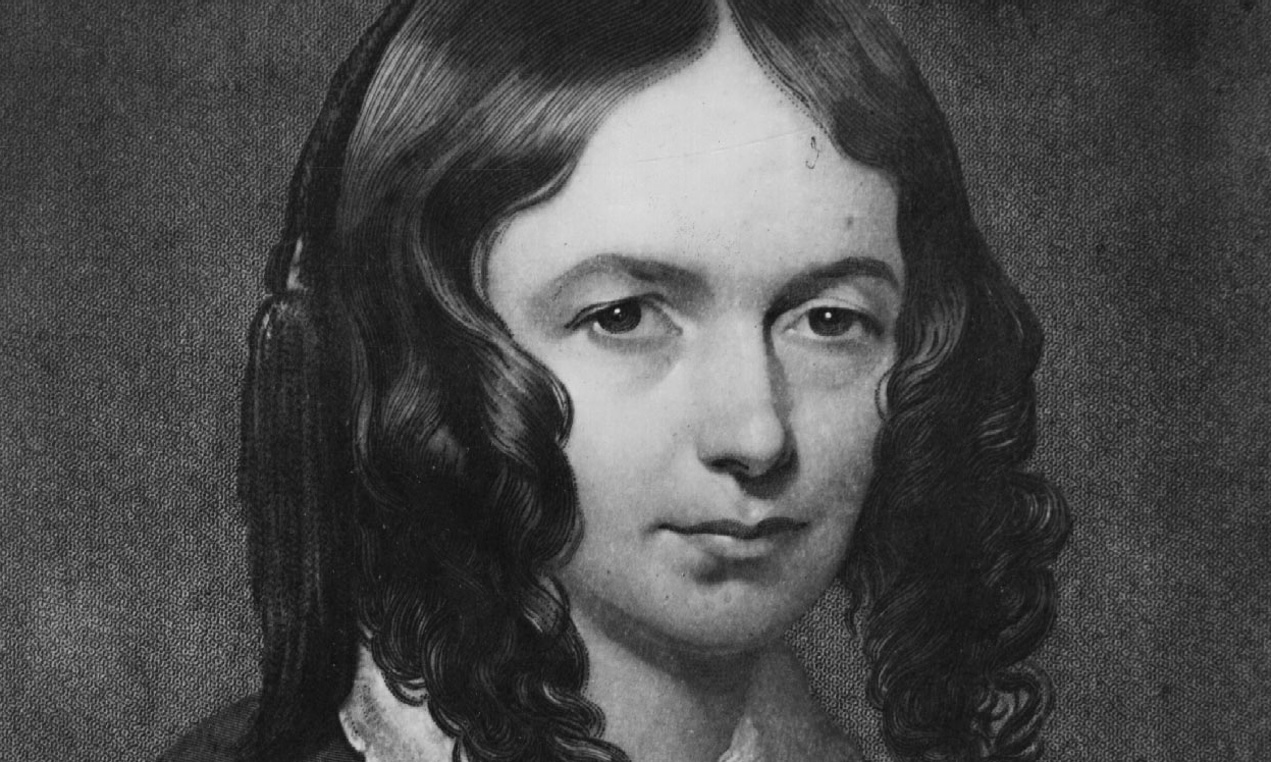
Elizabeth Barrett Browning's five best poems Books The Guardian
Elizabeth Barrett Browning. 1806-1861. Engraving from original Painting by Chappel, 1872. (Photo by: Universal History Archive/Universal Images Group via Getty Images) Among all female poets of the English-speaking world in the 19th century, none was held in higher critical esteem or was more admired for the independence and courage of her.

Elizabeth Barrett Browning The beautiful seems right by Anthony Caro
Elizabeth Barrett Browning and Robert Browning's letter to John Ruskin. 3 June [1859]. Armstrong Browning Library, Baylor University, Waco, Texas. Lord Derby, the off-again-on-again Conservative Prime Minister then serving, who was also the vastly wealthy 14 th Earl of Derby, was in fact to lose a vote of No Confidence the following week, and would dissolve his government on 11 June.

Celebrating Love with Elizabeth Barrett Browning Lady Budd
read this poet's poems. Born on March 6, 1806, at Coxhoe Hall, Durham, England, Elizabeth Barrett Browning was an English poet of the Romantic Movement. The oldest of twelve children, Elizabeth was the first in her family born in England in over two hundred years. For centuries, the Barrett family, who were part Creole, had lived in Jamaica.
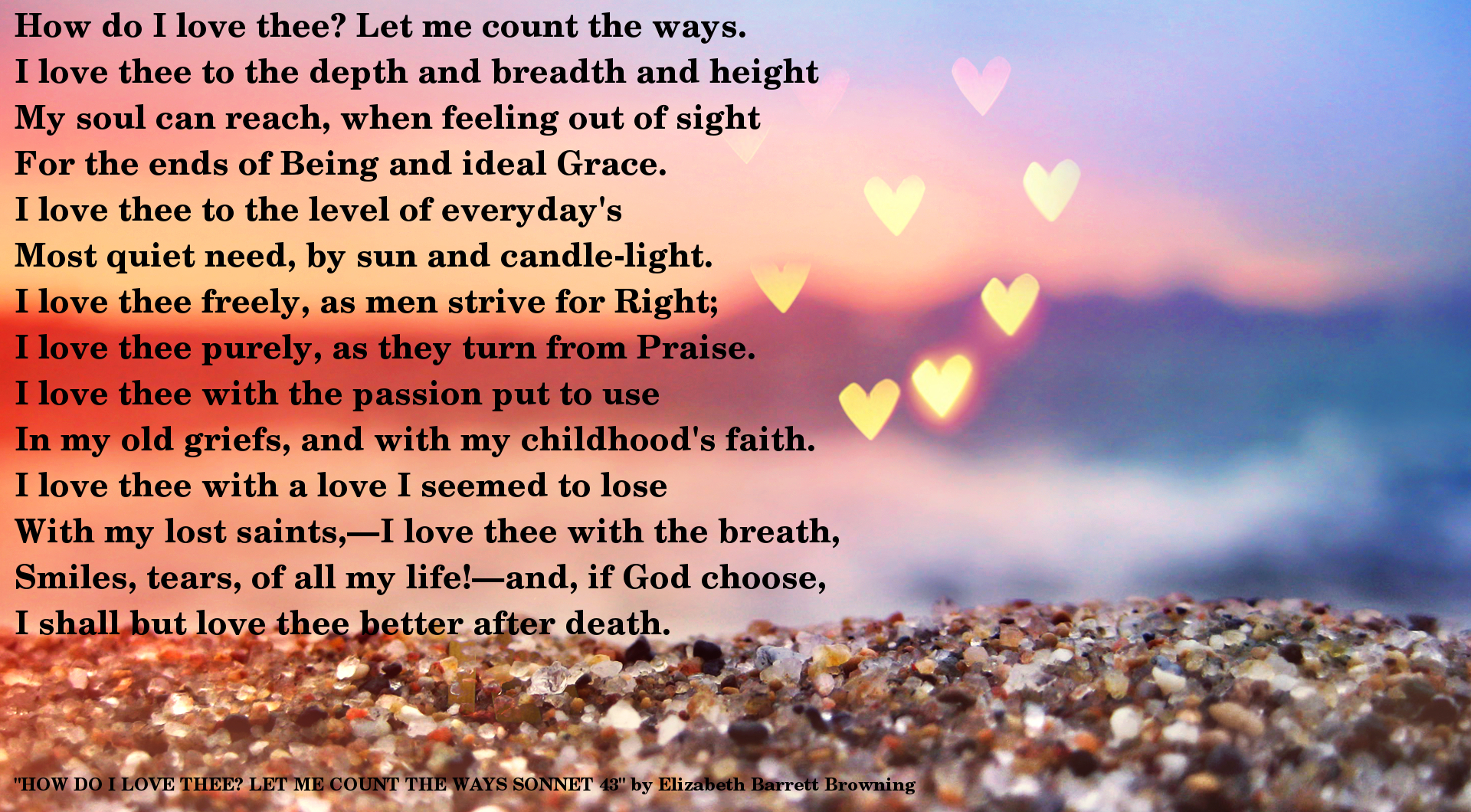
👍 Elizabeth barrett browning i love thee. How Do I Love Thee?
Frasi di Elizabeth Barrett Browning Scopri citazioni e frasi celebri interessanti e verificate · Elizabeth Barrett Browning è stata una poetessa inglese, moglie del poeta Robe…

Cartolina con aforisma di Elizabeth Barrett Browning (14) Elizabeth
Elizabeth Barrett Browning was a celebrated Victorian poet, famous not only for her love sonnets to her husband but her use of poetry to address social issues of the day. Her early life began in the northeast of England in County Durham where she was born on 6th March 1806, the eldest of twelve children. Elizabeth would benefit from a very.